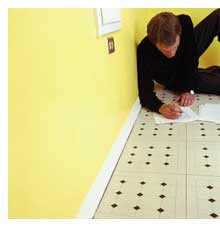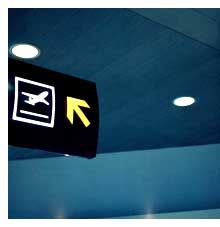
|

|

|

|

The Next Step
All employers seek the best-qualified people. But simply having the best qualifications is not enough. You must be able to communicate them effectively to the interviewer. Here are a few tips to help you prepare.
Where To Begin
Job Interview Preparation
Interview Conduct
What Professional Services Firms Look For
Parts of the Interview
After the Interview
Where To Begin
The interview process begins at your campus placement office. Make sure you're aware of all the resources that are available.
Candidates for a job should:
- Become familiar with prospective employers well in advance of graduation.
- Know when on-campus interviews are being held.
- Sign up early.
- Talk to as many companies as possible.
- Read employment literature.
- Prepare a systematic job search plan.
- Get advice from faculty, employers, and placement office staff.
- Speak with recent graduates who've been through the process.
Job Interview Preparation
With a little planning, you should be able to handle almost any interview with poise and confidence. Preparation and a positive attitude are essential.
You should:
- Know what you want in advance: the exact position, the amount of training you'll get, long and short-term advancement opportunities, and salary, as well as the location and type of work environment.
- Know the employer by reading brochures and annual reports.
- Keep current by reading Business Week, The Wall Street Journal and other business publications.
- Differentiate yourself by directing the interviewer toward your strengths rather than your weaknesses.

Interview Conduct
Interviewers typically have limited time to form an opinion, so first impressions are crucial.
 Remember to: Remember to:
- Arrive a few minutes early, but not so early that you appear anxious.
- Bring extra copies of your resume.
- Know the interviewer's name and its correct pronunciation.
- Look and act confidently.
- Smile.
- Act naturally and be yourself.
- Elaborate on answers and avoid "yes" or "no" responses.
What Professional Services Firms Look For
In addition to qualifications, interviewers often assess the following predictors of success:
- poise
- ability to communicate clearly
- maturity
- integrity
- stability
- self-reliance
They will also want to know about skills and attributes like:
- adaptability
- initiative
- enthusiasm
- aptitudes
- willingness to learn
- teamwork
- leadership

 Parts of the Interview
Parts of the Interview
The basic structure of an employment interview is fairly standard. But if you know what to expect, you may be able to directly or indirectly influence the course of an interview.
A typical interview has four parts:
Introduction
Rapport is established between the interviewer and the candidate, and a tone is set for the rest of the interview.
Background and Qualifications
The candidate's qualifications and suitability for employment are evaluated.
Discussion
The interviewer tries to match an applicant's qualifications and career interests with the available opportunities.
Closing
This is the wrap up, where final questions are answered on both sides and the candidate is told what the next steps are. Smile, shake hands, and don't overstay your welcome.
After the Interview
It's always courteous and professional to write a note of appreciation to the interviewer.
Thank-you notes should always:
- be short and sincere
- reaffirm interest
- demonstrate new knowledge
- review strengths discussed during the interview
- be timely

|
|
|


